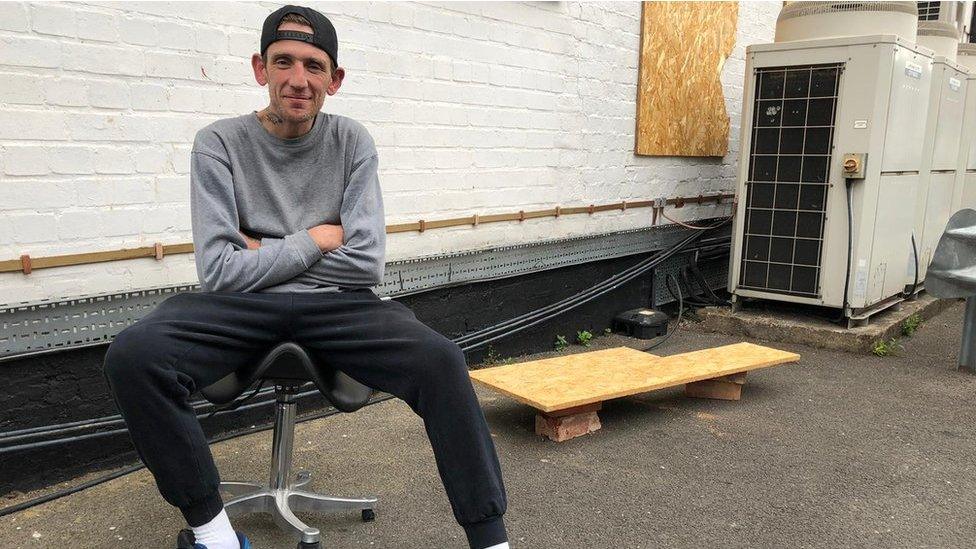Northampton bedrooms a 'Covid-secure' solution for town's homeless
- Published
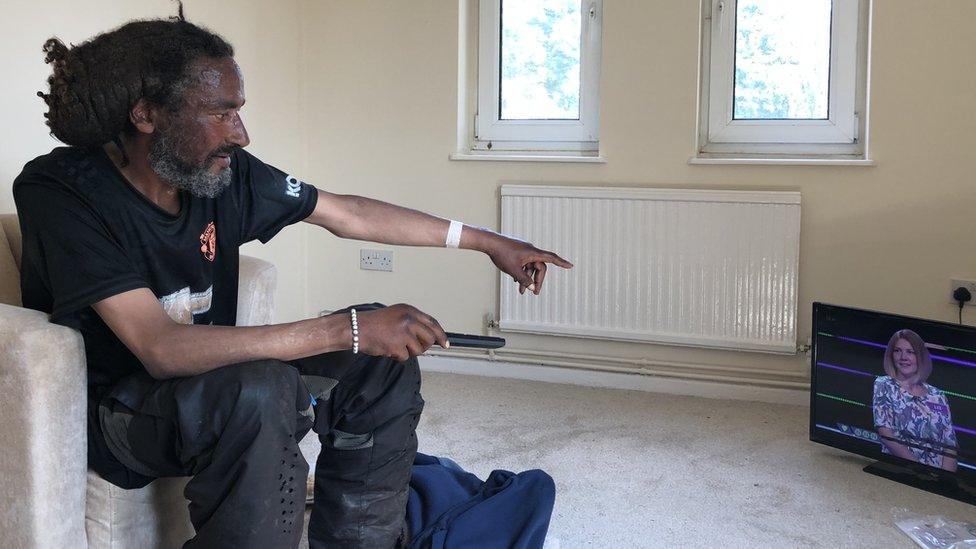
George Murray, who had been homeless for 15 years, was one of 98 people Northampton Homelessness Forum has helped into settled housing since the start of the pandemic
Emergency accommodation aimed at helping homeless people off a town's streets has been replaced by a new supported living scheme.
Almost 100 homeless and rough-sleeping men and women in Northampton have been moved into settled housing since the start of the coronavirus pandemic.
It is hoped the 27-bedroom scheme will provide a more "permanent solution".
Northampton Borough Council said it "offers people somewhere safe to stay that is Covid-secure".
The council is part of Northampton Homelessness Forum, which worked to move rough sleepers into two town hotels when the first Covid-19 lockdown started.
People were later moved into University of Northampton student accommodation.
In all, 160 people spent at least one night in hotel or university accommodation, with 98 moved into settled housing.
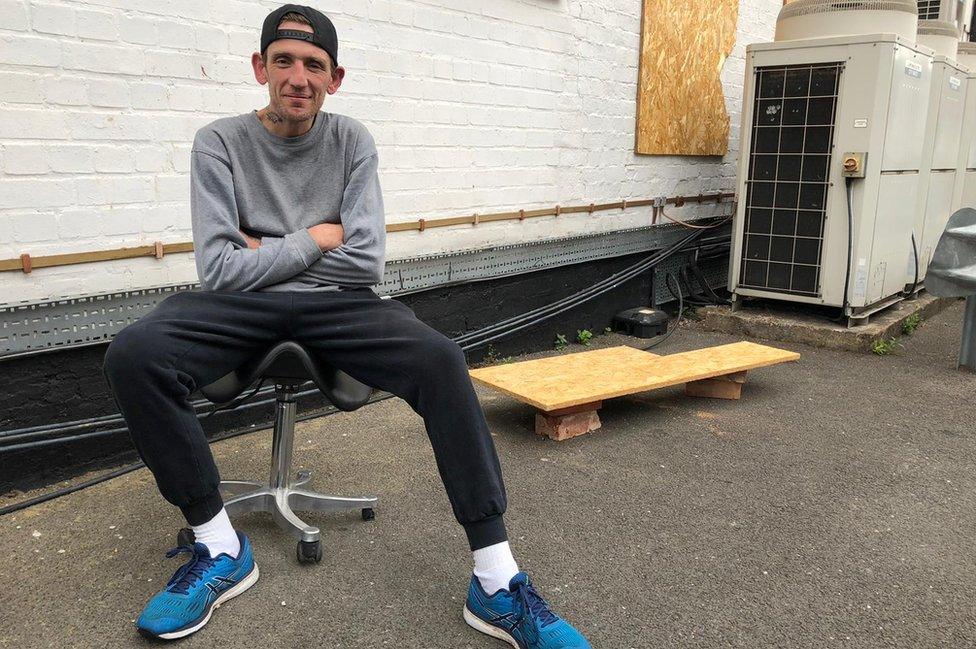
Daniel Stratford ended up on the streets after his marriage ended and moved into hotel accommodation when Covid-19 forced Northampton into lockdown
The emergency housing has been replaced by a 27-bedroom supported living scheme, funded through the government's Homelessness Assessment and Rapid Rehousing Pathway (HARRP).
It had been set to start at the end of the month, but launched early on 5 November when the second lockdown started.
The 24-hour-a-day accommodation, based in a single building and including 17 ensuite rooms, will be available to men and women as long as they currently, or are at imminent risk of, sleeping rough and have a local connection.
The council did not want to disclose the location.
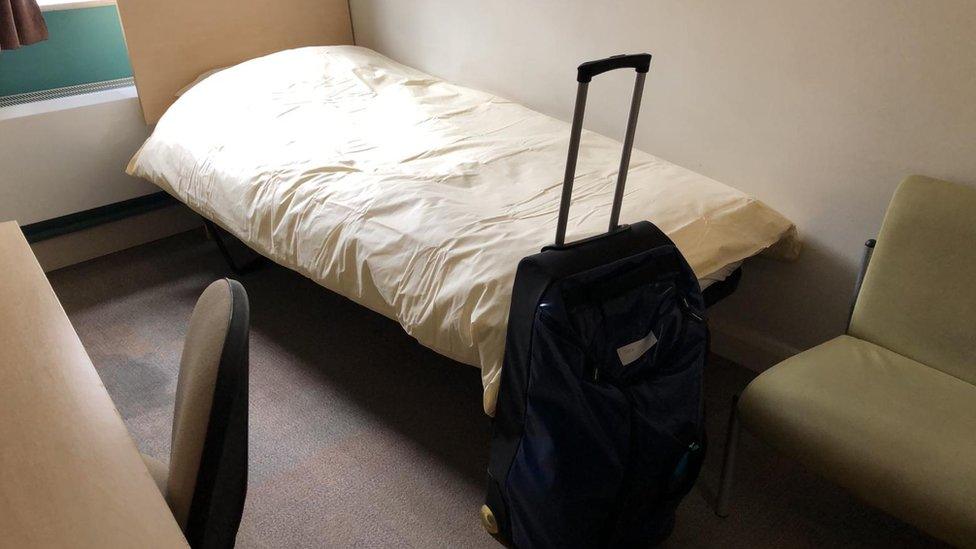
Emergency accommodation in student halls will be replaced by a 27-bedroom supported living scheme
Forum chairwoman the Reverend Sue Faulkner said the experience of many rough sleepers in the emergency accommodation during the pandemic had been "life-changing".
She said the forum had realised what "a real and lasting difference we could make" and that it "needed to act urgently to ensure a permanent solution was in place".
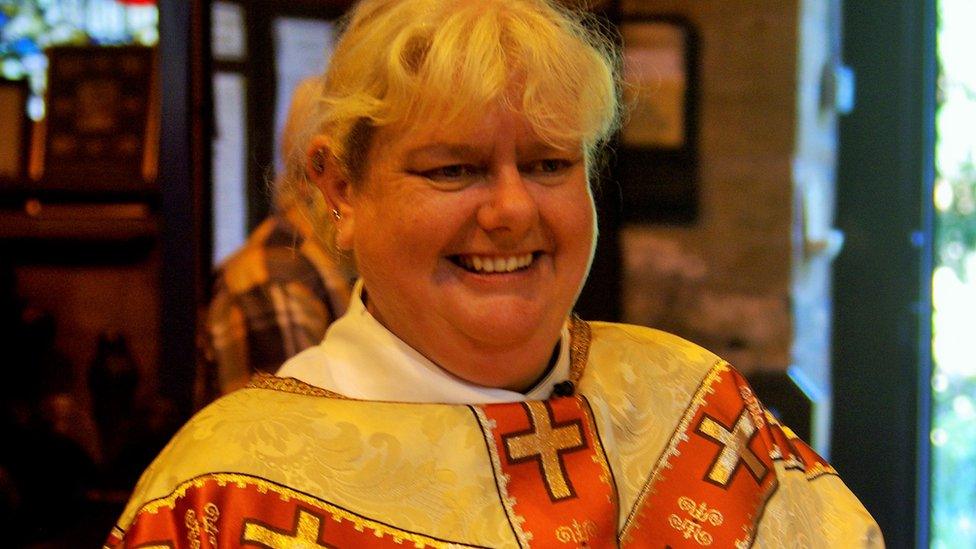
The Reverend Sue Faulkner said getting people off Northampton's streets and into accommodation made a "real and lasting difference" to their health
Borough council cabinet member for housing, Stephen Hibbert, said: "HARRP offers people who are sleeping rough, or in danger of doing so, somewhere safe to stay that is Covid-secure."

Find BBC News: East of England on Facebook, Instagram and Twitter. If you have a story suggestion email eastofenglandnews@bbc.co.uk
- Published7 November 2020
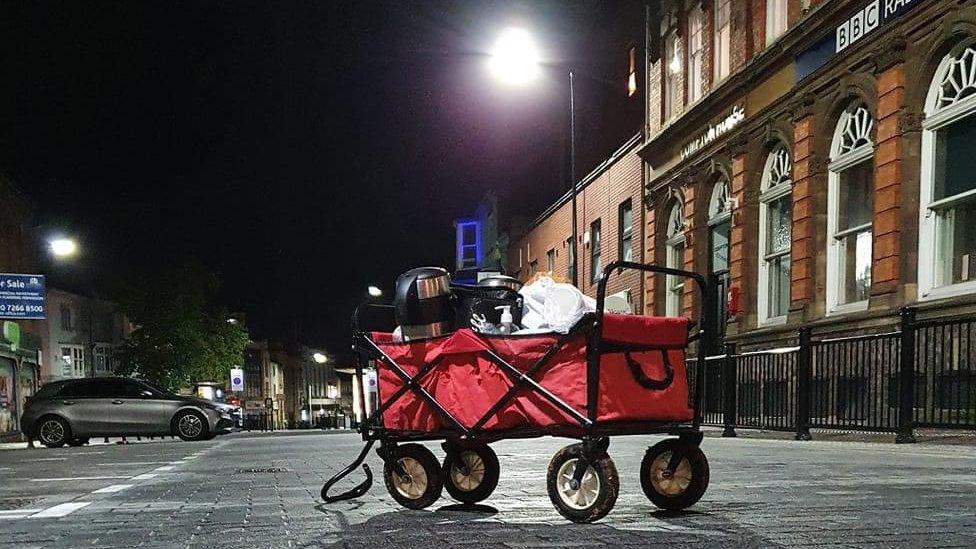
- Published15 August 2020

- Published1 July 2020
